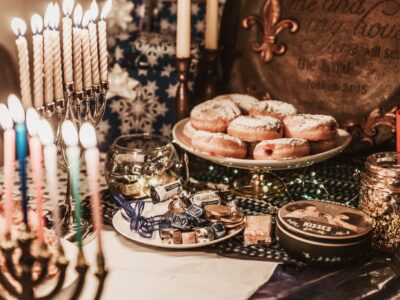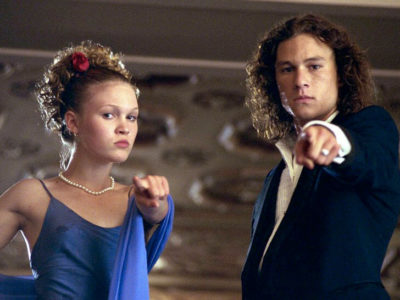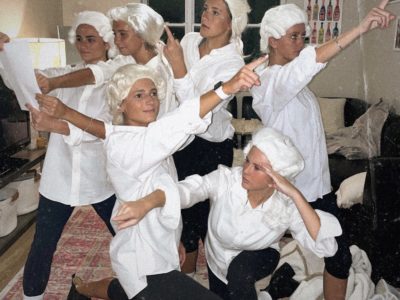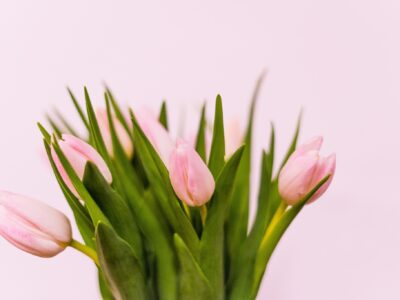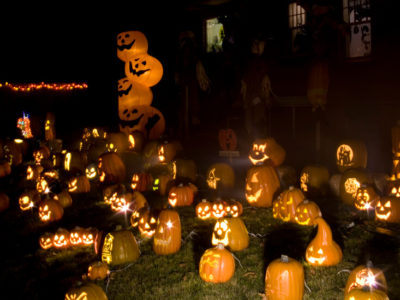If you happen to walk across a Jewish neighborhood during Hanukkah, you’ll notice a beam of light coming from the windows of each house. If you look closely, you’ll see a bunch of candles burning in what looks like a kind of candelabrum, aka a Menorah. You’ll probably see people singing while lighting the candles, children throwing dreidels competing among which spins around longer and everyone devouring delicious sufganiyot: a type of deep-fried donut covered all in sugar and commonly filled with jelly or custard but with chocolate or dulce de leche too.
What makes this holiday so special, though, relates to how the Jewish people come together to remember what happened thousands and thousands and thousands of years ago. As our history tells, a small group of Jewish “soldiers” (Maccabees) won over the whole Greek empire and rededicated the Holy Temple in Jerusalem in the Second Century B.C. We also commemorate the miracle of the lasted oil needed to light up the Menorah, which was expected to last one day, but it ended up lasting eight days.
This year, Hanukkah happens during winter break. While this means students cannot celebrate with their college friends, on the bright side, they don’t need to stress about lighting candles and gatherings in Chabad when there’s not enough time during finals week. Whether you plan on staying home or going on vacation this break and feel like you might forget about Hanukkah, just follow this list to find eight different ways to keep up with Hanukkah traditions.
Read on for eight Mitzvahs during the eight days of Hanukkah to feel like the proudest Jew out there.
1. Candles, candles, candles!
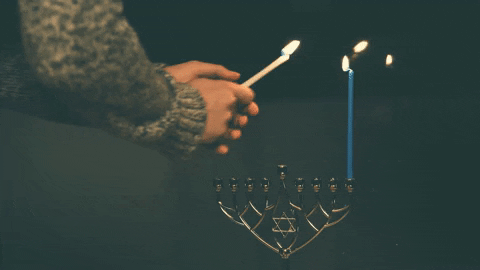
First and foremost, light the candles! You can finally get your favorite Menorah off the shelves in your living room and set it up. Gather your family and friends and light the corresponding candle of the night along with the Shamash, the first candle that we light and the one used to light the others. You’ll need 44 candles in total for the full eight nights, so make sure to go to the nearest Party City or Target before the holidays start to get those cute Hanukkah candles.
“Hanukkah is very special because it brings people together, especially when lighting the Menorah,” said Lori Sharabani, a senior at the University of Florida. “It’s a universal language that all Jews understand. That’s what I like the most about this holiday, that there’s no religious level, so we all do the same.”
Remember that for the lighting of the candles, you must follow some rules: the placement of the candles in the Menorah goes from right to left, but the lighting goes from left to right. Also, don’t forget to say the three blessings for the first and last night and only two blessings for the other six. If you feel confused, just Google it or go to your family group chat—I bet your mom already sent you everything you needed to know.
You can find reusable Menorahs practically everywhere today, but in case you don’t, ask the Chabad of your school and take one with you for the break. They usually don’t weigh much, so you can keep them in your suitcase wherever you go and take them out when Hanukkah starts. You can always check with your hotel to see if they do candle lighting during Hanukkah. If you worry about your mind wandering elsewhere during vacation, I recommend setting an alarm to remind you to light the candles. If you take a winter getaway with friends, believe me when I say that lighting the candles together will bring you even closer.
2. Open your Siddur, pray and sing along!
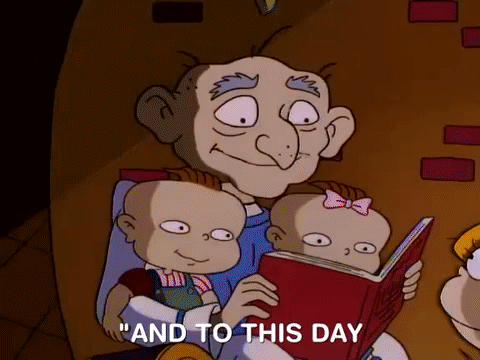
Jewish prayers vary depending on the holiday and family traditions, but on Hanukkah, we say the full Hallel (the recitation of Psalms 113-118) on the eight days. We also remember to read the Hanukkah story and all the traditions and mitzvahs one must follow. In Jewish schools, children learn some typical Hanukkah songs that, hopefully, they will remember every year and pass on to the next generations. These songs are usually in Hebrew, but in the United States, there are quite a few in English as well. “Dreidel, dreidel, dreidel…” As contagious as it gets, prepare yourself to sing this song even in your dreams.
3. Forget about diet, calories don’t count on Hanukkah!
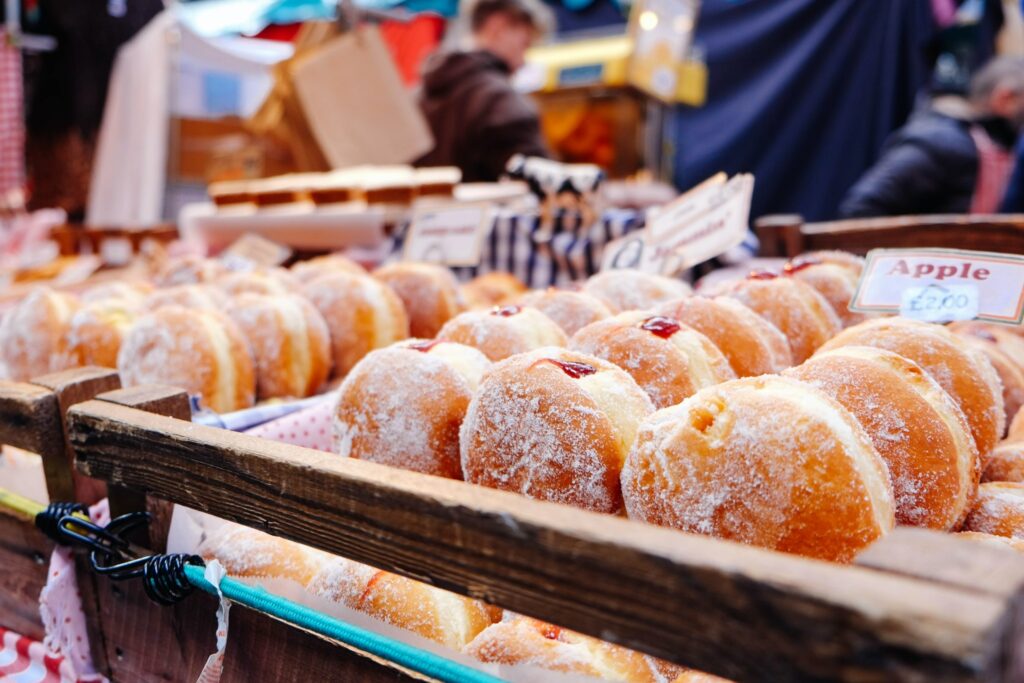
Technological advances and the modernized world constantly show us the unhealthiness behind fried foods, oil, sugar and flour. But in the twelfth century, when Rabbi Maimon ben Yosef declared the importance of commemorating the miracle of the enduring oil, these dietary rules did not exist. In fact, the Jewish people already worshiped sufganiyot for a long time before that. If tradition says to eat donuts made of chocolate, vanilla, jam or caramel, we shall obey, right?
“I love cooking, so my favorite part of Hanukkah is, of course, making sufganiyot,” said Sharabani. “There’s nothing more meaningful than having people over to my house, whether I’m at school or home, and eating this delicious trait that we only get to eat once a year.”
Latkes, a kind of fried potato pancake, also belong to the list of typical Hanukkah fries. The combination of lighting the candles and sitting down with loved ones to enjoy this crispy, golden Jewish treat makes my love for this holiday even deeper. If, sadly, you can’t spend Hanukkah with your family this year, just Google some easy latke recipes (The New York Times, as usual, offers a pretty good one) and get together with your roommates and friends for a wine-and-latke night. For those who follow strict dietary rules, you can add a healthier twist to the mix, like grated carrots, onions or any veggie you like. And voilà, dinner is served for the rest of the week.
4. Not Christmas, but in Hanukkah we also do gift-giving

Gift-giving during Hanukkah doesn’t appear in any written document and it doesn’t belong to the list of traditions carried from thousands of years ago either. In fact, the reason why adults give presents away to kids relates to Christmas. These two holidays mean completely different things, but Jews and Christians happen to celebrate both holidays around the same time of the year. In America, parents decided to start the gift-giving tradition to cheer up Jewish children who felt like missing out when the other kids got gifts for Christmas. Kids usually get gifts either the first or last night of Hanukkah (or both if your family really loves you), but they can also get a bag of chocolate coins after the lightning of candles each night.
You don’t need to go crazy with Hanukkah gifts, especially during college. Keep things traditional by getting some budget-friendly Menorahs from Amazon, a cool set of dreidels to decorate the living room of your college apartment or pretty candles for the whole eight weeks. If you feel like cooking, try baking some sufganiyot and filling them with your loved one’s favorite flavor. Then give them a box with one particular flavor or a sorted sample box of this delicious treat. Get creative during the break and get some cute souvenirs from whatever part of the world you visit, and if you decide to stay home, there’s plenty of free time to come up with some cool ideas for your loved ones. Remember, you can never go wrong with an appreciation card.
5. Not quite like Thanksgiving, but show some appreciation time
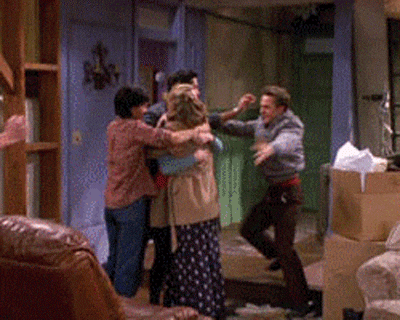
During Hanukkah, Jewish people around the world must celebrate the weeklong. Unlike other holidays where practitioners mourn the tragedies of the Jewish people, this time of the year equals joy. Hanukkah gives us time to embrace the little miracles in our lives and how God guides each of us every step of the way. The Jewish people constantly show gratitude from the moment they wake up and recite the first prayer (Modeh Ani) where they thank God for literally existing. During the rest of the day, you can find more and more blessings to show gratitude too. So, during this “Festival of Lights,” by reciting blessings you can thank God for even the smallest things you do on a daily basis.
Most importantly, when you celebrate this holiday with the people you love, show and tell them how grateful you feel for them. Text that friend you don’t talk to often and say, “Happy Hanukkah,” and invite friends or family over to your house to light the candles and eat some Hanukkah treats. You should also take time to appreciate that despite all the previous generations went through, you can still proudly celebrate your traditions.
6. Give Tzedakah

On the sixth night of Hanukkah, the Jewish people come together for Ner Shel Tzedakah, a project that encourages children to learn about poverty and take action to help those in need. People give donations to poor communities and pray to help them. For some people, Hanukkah does not enter the list of the most important Jewish holidays. For others, though, it gives space to fulfill some mitzvot that they don’t do during the rest of the year.
This year, what can you do? Some families take advantage of this time to make donations to charities. Children collect clothes that they no longer use to donate to people who may need them. You can also use the money your grandparents gave you for Hanukkah and donate it to people in need. If you happen to organize your closet during the break, now you know what to do with all your stuff.
7. Share the light and help others
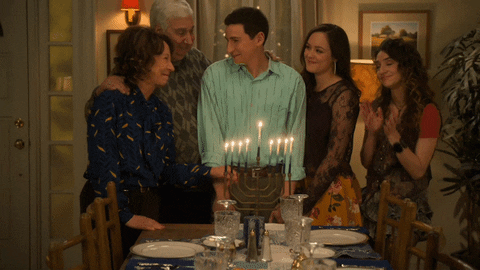
Hanukkah allows time for family and friends to finally get together and enjoy the holiday, but what about those in nursing homes who are too old to even remember it? Another great mitzvah in Hanukkah involves helping people light the candles and recite the blessings. Gather some friends or family and go to the nearest nursing home or hospital to visit the sick and light candles. You can also give menorahs and candles to people who can’t afford one this year. Of course, bake some sufganiyot and latkes to give away along with greeting cards. Nothing will satisfy you more than bringing the light of Hanukkah to others.
“This year we are not doing much during Hanukkah because it’s during winter break,” said Chanie Goldman from UF Chabad. “But we’ll do what we always do which is giving out menorahs and using social media to encourage students to take a few minutes to light the candles. Even on vacation, we tell students the importance of lighting the candles and we always ask them to share pictures with us for our social media feed.”
Goldman explained that lighting the menorah goes beyond bringing light to ourselves but to the rest of the world too. She said that by lighting the menorah in public places we inspire and encourage Jewish people to feel proud of their religion. At the same time, lighting the menorah serves as a way to let other nations understand that the Jewish people aren’t going anywhere.
8. Publicize this holiday!
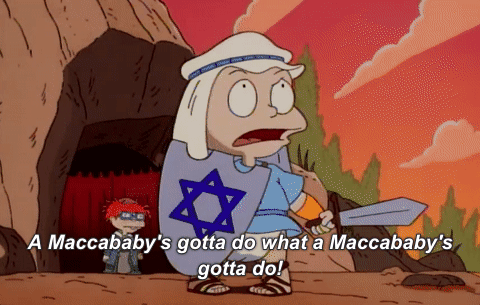
So why do the Jewish people put the Menorah in the windows of their houses? The simple answer: to make the rest of the world learn about the miracle of the lasting oil and how God helped the Jewish people win the battle to rededicate the Holy Temple. During the Greek oppression, Jews couldn’t practice their religion in public, otherwise, they risked their lives by doing so. Moreover, after World War II, where six million Jews died during the Holocaust, and after the extreme wave of anti-Semitism that constantly discriminates against Jews around the world, now, more than ever, Jews mean to put the Menorah at their windows just to face it and fight against it.
“The menorah represents the resilience of the Jewish people and that despite the hardships and challenges, the little light that we have shown, has turned into a bright fiery flame that has helped Jews prospered throughout the ages,” said Goldman. “We are supposed to light the candles in public places like in front of Library West on campus, to show Jewish pride.”
Another way to publicize this holiday includes talking about it with people who don’t know much or simply don’t know anything at all about Hanukkah (both Jews and non-Jews). By sharing the history and traditions, you can make someone fulfill one or more of the mitzvahs listed above. Share your light and inspire others to help those in need. Maybe, by the next Hanukkah, they will push and inspire others to fulfill the same mitzvot they once learned from you.

